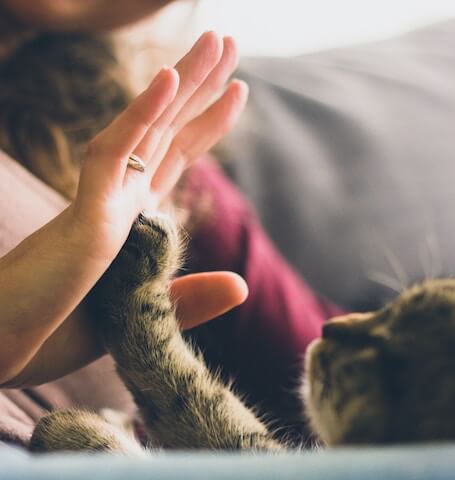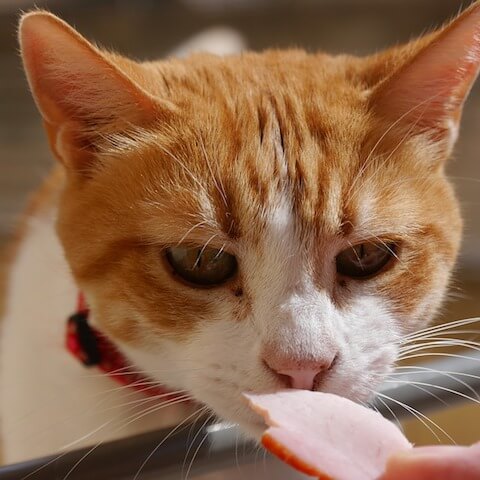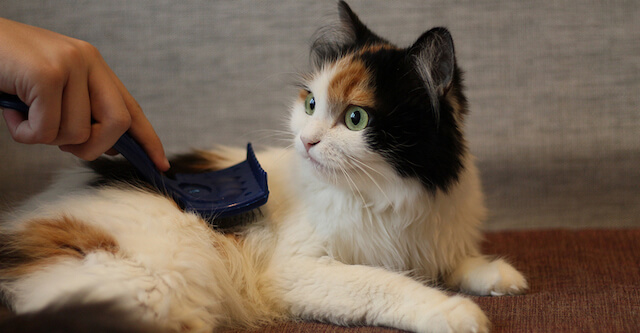
Confession: I’m not really a cat person. But I get that owning pets offers companionship to lots of people. And there are actually scientific studies that show that cats help reduce stress levels and promote a better sense of well being and health. I’m all for that. So let’s talk about some simple ways to keep your beloved feline friend healthy and alive.
Use caution if you self-medicate your cat.
With the side effects of many veterinary medications, you may have an urge to look to natural alternatives for treatment and preventative care for your cat. The idea sounds great until you start looking up adverse reactions to herbs in cats. The list is long, people. Do your research, or better yet, consult a veterinarian before giving your cat preparations that are intended for humans.
Don’t feed your cat people food.
Cats’ digestive systems are not the same as ours, and some seemingly innocuous foods can actually be toxic to cats. Here is a rundown of some of the most dangerous foods for cats.

- Onions and garlic – This includes onion or garlic powder. So if you want to feed your cat table scraps, 86 the seasoning.
- Avocados – I am not sure why anyone would give a cat avocado in the first place. Sorry Tigger, no guac for you.
- Chocolate and other caffeinated products – This one is pretty serious. Chocolate contains the alkaloid theobromine, which cats are unable to metabolize. The darker or richer the chocolate, the more dangerous it is.
- Ethanol from alcoholic beverages. Cats can’t metabolize even the smallest amount of alcohol. So while it may be tempting to share a glass of wine with your favorite purring companion, just say no, kitty. Just say no.
- Grapes and raisins – These can cause severe kidney failure. Find something else for Cuddles to snack on.

Help her stay fit.
Obesity in cats greatly contributes to a shortened lifespan. There aren’t many ways to encourage adequate exercise with a cat. So especially if you have a lazy or older cat, do your part by closely monitoring her diet to keep her fit. Go easy on the treats, as they tend to be higher in fat and calories.
Spay or neuter.
Not only does spaying and neutering help keep the stray population in check, studies show that sterilization actually promotes a longer lifespan. One study reported that neutered male cats live an average of 62% longer than unneutered male cats, while spayed female cats live an average of 39% longer than unspayed female cats.
Brush him regularly.
Every cat owner knows the horror. Sweet little Garfield is sleeping peacefully on your bed. But suddenly, he jolts up, retches convulsively for few moments, and hacks up a damp clump on your favorite bedspread. What he has just disgorged is a trichobezoar; a wad of undigested hair commonly referred to as a hairball. Blech. Usually this is harmless and normal—albeit disgusting—for your cat.

However, a hairball can pose a serious threat it if gets too large to pass through your cat’s narrow sphincters leading either from the esophagus to the stomach or from the stomach to the intestinal tract. And if a hairball does manage to make its way into the small intestine, it can become lodged there. You can help keep your cat’s hairballs to a minimum by regularly brushing his coat to remove lose hair. Bonus for your bedspread too.
Do you love cats?
Share your insights about how to promote a long and healthy life for your furry friend.
You may also be interested in Essential Oils and Cats: Are they all doomed?


